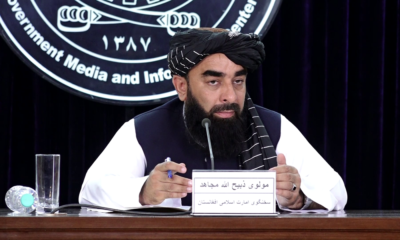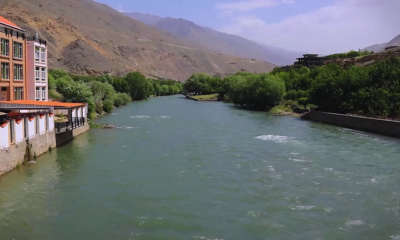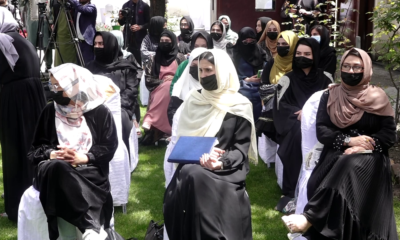Latest News
U.S. efforts in Afghanistan a tactical success, but strategic failure: Milley

US Army General Mark Milley, the chairman of the Joint Chiefs of Staff, called U.S. efforts in Afghanistan a “tactical success, but a strategic failure.”
The Afghan government and military fell to the Islamic Emirate of Afghanistan (IEA) faster than anyone expected, and that was the failure, he said.
But the noncombatant evacuation operation managed to get more than 124,000 people out of Kabul, as the IEA entered the Afghan capital. The effort involved thousands of service members from around the world, Milley said as cited by the US Department of Defense.
Air Force Major General Corey J. Martin discussed the operation last week with the Defense Writers Group. The keys to the evacuation operation were connectivity and planning, he said.
Planning for the noncombatant evacuation operation began in April, immediately after President Joe Biden said the U.S. effort in Afghanistan would end, the DOD reported. “It started with planning, even though the timing of this event was not known,” Martin said.
Members of U.S. Transportation Command integrated with representatives of the U.S. Central Command and the Joint Staff to plan and execute the retrograde operation of U.S. forces and equipment from Afghanistan, he said.
In August, the IEA offensive against the former Afghan government intensified and provinces were taken. Martin said the speed of the collapse was “a bit of a surprise,” but the Transcom planners were not starting from scratch when the need for evacuation became apparent.
Army Gen. Stephen R. Lyons, the commander of U.S. Transportation Command, had another ace up his sleeve in preparing for the possible operation, Martin said. “General Lyons, as the commander of Transportation Command, has standing authorities that allow for rapid and agile repositioning of mobility forces,” Martin told the reporters.
It allows the command to direct the operational movement of C-17s or KC-135 aircraft quicker, he said.
The speed was needed as the dissolution of the former Afghan forces necessitated the transport of U.S. combat forces to secure the Kabul airport.
The command had to get 6,000 service members and their supplies to the country quickly.
The aircraft and personnel to maintain and fuel them were already in place, and it “allowed the operational movement to be ready to take combat forces, literally almost overnight to Hamid Karzai International (airport) in the face of the advancing Taliban (IEA) to secure that airfield, and allowed for the movement of evacuees out, and then the redeployment of the combat forces,” Martin said.
Connectivity among the Office of the Secretary of Defense, the Joint Staff and the U.S. combatant commands was paramount. Martin said there were constant communications with higher headquarters and with U.S. Central Command, U.S. European Command and U.S. Northern Command.
In addition, there were nationals from many allied and partner countries in Kabul. Martin said at least 30 nations cooperated with the effort, which required constant communications with State Department colleagues, Homeland Security and more.
Martin said the Global Operations Center at Scott Air Force Base, in the U.S. was the “heartbeat” of the command with all elements represented. “At the action officer level, there was integration with Department of State personnel, Customs and Border Patrol, and the FAA [Federal Aviation Administration],” he said.
The overall effort was mammoth and complex, Martin said. It is more than the gray Globemaster C-17s. It was the personnel maintaining the aircraft. It was the refuelers — in the air and on the ground. It was the combat troops on the ground and the airmen who took over the air traffic control in Afghanistan for the operation. It was State Department personnel processing the evacuees.
It was the Air Force and Navy air combat patrols over Kabul, and the service members at intermediate bases in the Middle East and Europe. It was the service members and agency partners in the United States. It was the companies and crews of the Civil Reserve Air Fleet. It was intelligence professionals funneling information to the command.
All these people combined to make the noncombatant evacuation operation from Afghanistan a “tactical success,” Martin said.
Transcom is already looking at the experiences in this effort to see what can be done better, the general said.
Latest News
IEA clarifies annual payout for victims of Afghanistan’s 20-year war
Mujahid said that last year, 12.5 billion afghanis was budgeted and distributed to support these people.
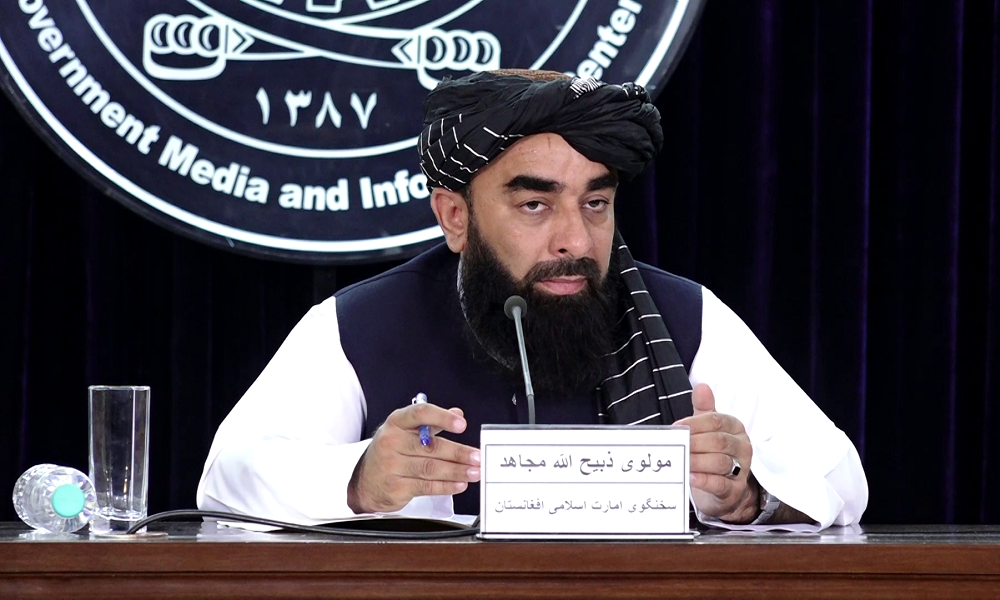
The Islamic Emirate of Afghanistan’s spokesman Zabihullah Mujahid has clarified reports of an annual payout for families of war victims saying the money is for the families of mostly all victims who died during the war with the United States.
Mujahid said the annual payout of 12.5 billion afghanis (AFN) was not only for the families of deceased IEA fighters but also for the families of deceased security force members from the former government, as well as orphans and widows of civilians killed, and disabled people.
Mujahid said that last year, 12.5 billion afghanis was budgeted and distributed to support these people.
This comes after a number of media outlets published reports over the past two days of an interview with Zabihullah Mujahid. The reports stated that 12 billion afghanis has been allocated annually to the families of the Islamic Emirate’s fallen soldiers, who died during the 20-year war.
International Sports
IPL 2025: Sunday’s KKR vs LSG match pushed out to Tuesday
Sunday will now be a single-header match day, opposed to the usual double-header schedule.

The Board of Control for Cricket in India (BBCI) announced Wednesday that Match 19 of the Indian Premier League (IPL) between Kolkata Knight Riders (KKR) and Lucknow Super Giants (LSG) has been rescheduled and will be played on Tuesday, April 8 at 2:30 pm Kabul time.
The match was originally scheduled to take place this Sunday, April 6.
Sunday will now be a single-header match day, opposed to the usual double-header schedule. Sunrisers Hyderabad will play Gujarat Titans at 6 pm Kabul time as originally scheduled.
However, two matches will be played on Tuesday, April 8. First up will be KKR vs LSG, followed by the Punjab Kings vs Chennai Super Kings.
Wednesday’s match
Wednesday, April 2, saw Punjab Kings cruise to an 8-wicket win over Lucknow Super Giants after a dominant all-round performance.
A disciplined bowling effort restricted LSG to 171/7 at home before PBKS chased it down in style.
Player-of-the-Match Prabhsimran Singh (69 off 34), skipper Shreyas Iyer (52* off 30), and Nehal Wadhera (43* off 25) powered the visitors to a flawless finish, keeping them unbeaten in the league.
This convincing win propelled PBKS to second place in the points table, boosting their confidence for the games ahead.
Thursday’s match
Today, Thursday April 3, will see Kolkata Knight Riders take on Sunrisers Hyderabad at Eden Gardens in Kolkata.
The match will start at 6 pm Kabul time. Once again, Ariana Television will broadcast this thrilling event live across Afghanistan.
Latest News
Panjshir to Kabul water conduit project ‘waiting for budget approval’
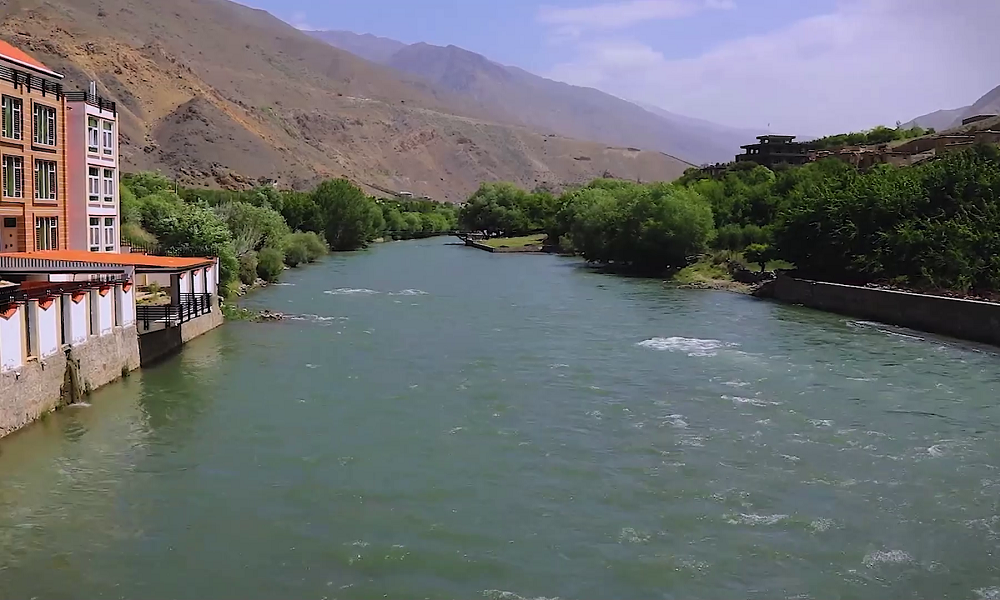
Afghanistan’s Ministry of Energy and Water is waiting for budget approval on the much-needed Panjshir to Kabul water conduit project – which, once completed, will alleviate the severe water shortage crisis in the capital.
Matiullah Abid, spokesperson for the Ministry of Energy and Water, confirmed the initial phase of reviewing and planning of the project is complete and construction work will start as soon as the budget has been approved.
Abid said the aim of the project is to help reduce water shortage issues in Kabul..
“The survey, design, and technical studies of the Panjshir water transfer project have been completed by the Ministry of Energy and Water, and the project [budget] has been sent to the leadership of the Islamic Emirate for approval,” he said.
“This project will commence once it is approved and the budget is available.”
The water conduit project will cover a distance of over 200 kms starting in Bazarak in Panjshir and ending in Tarakhail in Kabul.
Residents of Kabul have welcomed the plan and said once complete the additional water will help alleviate the drinking water crisis.
Experts meanwhile believe that this project could help Kabul’s groundwater levels to improve.
“I believe that the Panjshir water transfer project will help replenish underground water sources once again, and the people will have access to clean and healthy water. Additionally, with the transfer of Panjshir water, the agricultural lands around Kabul will also be managed with water, which, in turn, will create job opportunities for the people,” said Abdul Nasir Reshtia, an economic expert.
The plan to transfer water from the Panjshir River to Kabul was designed in 2012. In the 2020 budget of under the previous government, around $5 million was allocated for the annual transfer of 100 million cubic meters of Panjshir River water to Kabul.
The project was expected to be completed by 2023 but never got off the ground until the Islamic Emirate takeover.
-

 Health5 days ago
Health5 days agoGlobal organizations warn of health crisis due to aid cuts in Afghanistan
-

 International Sports5 days ago
International Sports5 days agoChennai grapple with IPL home truth after Bengaluru defeat
-

 World4 days ago
World4 days agoMyanmar quake death toll hits 1,700 as aid scramble intensifies
-

 Sport4 days ago
Sport4 days agoIPL 2025: Gujarat Titans beat Mumbai Indians by 36 runs
-
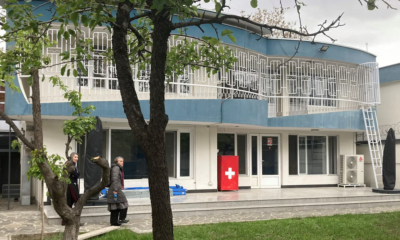
 Latest News3 days ago
Latest News3 days agoSwitzerland re-establishes presence in Kabul with humanitarian office
-
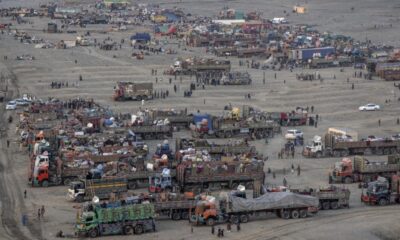
 Latest News3 days ago
Latest News3 days agoPakistan plans to expel 3 million Afghan refugees this year
-
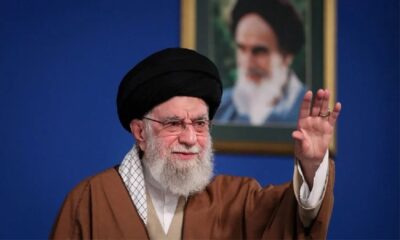
 Regional3 days ago
Regional3 days agoIran’s Khamenei warns of ‘strong’ response if US attacks
-

 World3 days ago
World3 days agoSouth Korea, China, Japan seek regional trade amid Trump tariffs


